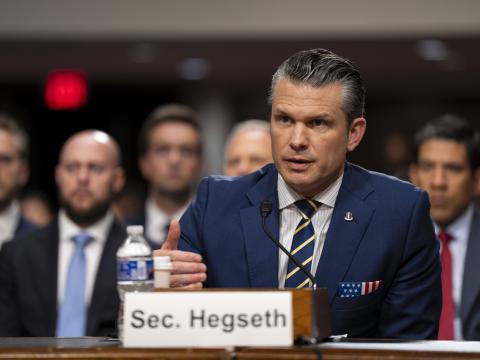Think Fast
"Significant change" is needed in how organizations approach questions of efficiency and effectiveness, writes Lt. Gen. Harry D. Raduege Jr., USAF (Ret.) in this month's Incoming column, Change Is a Requisite for the Future of Network-Centric Operations. Noting how businesses are embracing Internet-based Web services and social networking media, he makes a case for a culture of risk-taking and risk managment, and an ecosystem-like, nodal information structure to better achieve an interoperable information core and cut down on translation overhead. While he doesn't discount the security, privacy and intellectual property issues that will come up, he says that we're already well past anywhere we might have dreamed of just 10 years ago, and emphasizes that government must keep pace:
Continuous improvement in cybersecurity, situational awareness, decision making and response to events across all organizational venues is a national imperative and is being driven by speed. Technology is evolving at a rate that continues to leave behind those who lack the agility to accommodate its accelerating rate of change. Achieving this agility requires institutionalizing a culture of risk taking and risk management, along with streamlined acquisition processes. The single enterprise concept or vertically oriented approach is not the answer. Power lies in shaping and advancing information and knowledge sharing as a global capability across all operational entities. This will create a competitive advantage that denies opportunities to adversaries and is capable of responding to their actions with speed, precision and measured effect. The resultant global adaptive network of networks eventually will challenge, if not render obsolete, present views on bandwidth limitations, information assurance, reliability and connectivity. ... To date, the need for cultural change has exceeded the flexibility of traditional organizations. Moreover, federal acquisition principles, processes and practices have become obsolete and cumbersome as the rate of technology advancement accelerates. In short, the federal government has yet to adapt to this new world-a world of technical and cultural change that advances at a rate inconceivable even 10 years ago.You can read his entire column here. And, for discussion on SIGNAL Scape this month: How do you keep up with the rapid advances in technology and changes in culture that result from them? How can government agencies adapt to these changes more readily?




Comment
Federal acquisition
Comments